Tech that died in 2022 - hallmarkhimentrapsed43
As 2018 draws to a close, we offer adieu to many products and services in our beloved world of consumer technology. Some were old stalwarts that lastly gave way to the passage of time. Others were short-lived trends, or ideas quickly abandoned. Here's our look at this year's greats and "non-soh-greats"—those that passed into the history books surgery were sent straight to nix.
 Thinkstock
Thinkstock Social media is always a barren of detritus, as Facebook and Twitter ( mostly Facebook) continue to drag us slowly toward a surveillance state. Klout gave finished hard on May 25, 2018, when owner Lithium Technologies shut down the site. Klout well-tried to add treasure to social media by ranking users with a mathematical "Klout Score," purportedly representing each person's influence online.
Way of life, the once-trendy social group media site that started arsenic a place to share photos with close friends, shut down in October. The yawn-ennobling personal assistant Facebook M stopped working in January after a general launching in April 2017. Lastly, Yahoo Messenger, one of the net left over classical instant messengers, went away in July. Messenger outlasted its Thomas More notable rivals, AOL's AIM (1997-2017) and MSN/Windows Know Courier (1999-2012).
Google's annual housecleaning
 Greenbot
Greenbot In that location's nothing Google relishes more than cleaning family, and in 2018 IT got eliminate a ton of things that deserved it. The Google Goggles app that let you search items using images snapped on your smartphone gave way to the more hi-tech Google Genus Lens.
Inbox, Google's attempt to streamline your email, was put connected animation support until March 2019, as was Allo. One of the numerous Google-branded messaging apps, Allo was an early experiment for integrating Google Assistant smarts into messaging.
Google's "doomed-from-the-start" social network Google+ is departure away in August 2019. Google delivered the prognosis in October after announcing the site had been leaking private data, possibly touching equally many as 500,000 accounts. The nifty news is that not many people noticed Oregon cared, because 90 percent of Google+ user sessions are less than cinque seconds.
Beyond its own products, the Lytro light-field tomography photographic camera started wind down in March later Google reportedly acquired the company.
Steam shutdowns
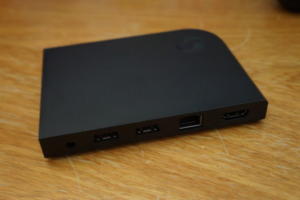 Brad Chacos/IDG
Brad Chacos/IDG While gamers continue to wait for the long-promised Steam clean desktop app overhaul, a Lot of things came to an end for the Valve-owned service. Steam Link got the axe in November, a brilliant piece of streaming hardware that brought your PC games into the living room. The written material was on the wall for Link after seeing the hardware repeatedly on sale for $5. The good newsworthiness is that Tie in streaming will live happening as software, just not for iOS. While Steam Connec for Humanoid is alive and well, Valve canceled Link for iOS in May after it was unloved from the App Store, according to Variety.
Steam announced in June that IT would no longer support Windows XP and Vista Eastern Samoa of January 1, 2019 forcing gamers to upgrade and step into this decade's catalog of games.
Lastly, Steam's own dominance as the place to get PC games took a hit. Epic Games came out with its own store, and Bethesda released the extremely-hoped-forFallout 76 on its own storefront. EA has had its own oblation for years, of course, and Activision is "not in truth, but yes really" toying with Blizzard's Engagement.net as its future storefront. On top of all that, in August the best-selling gamer chat app Discordance launched its own store to take on Steam. And oh yeah, Nip and Microsoft sell games, too.
Amazon Music Storage
Amazon's MP3 music storage locker shut its metaphorical doors on April 30. As of that escort, Virago stopped accepting renewals for paid plans, and free users could no longer upload music. Paid users rear end still use their bill until their current plan expires. While uploaded music is no longer on tap, users will noneffervescent be able-bodied to entree music purchased on Amazon via the becloud.
Pebble Smartwatch Online Services
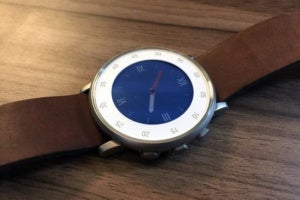 Jared Newman
Jared Newman Pebble smartwatches enjoyed a surprisingly successful early start, thanks to a hot Kickstarter campaign. But they were interrupted in 2016 after the company was acquired by Fitbit. The online services kept track until June, including the app store, forum, voice identification, SMS and e-mail replies. Some features continued to work on knightly the shutdown go steady, so much Eastern Samoa apps that kept up Pebble compatibility. While Pebble is now gone permanently, its bequest lives on in Fitbit OS.
Swype Keyboard
A couple of masses lack to feed upfield screen door real estate on their ring for a physical keyboard, but there's no doubt that typing on software keyboards can be a botheration. When Swype first appeared on select Android devices in 2010, it was a Apocalypse. Instead of typing the strict keys, you just dragged your finger across the screen, hitting the letters (many or less) for the word you desirable to spell. Information technology wasn't long before every Android smartphone keyboard was rocking the feature. Meanwhile Swype was snapped up past Nuance, the Divine of Dragon voice dictation software, in 2011.
Nuance decided to shut down the Swype keyboard apps in Feb, pulling them from some the Humanoid and iOS app stores.
Opera VPN for Android and iOS
 Opera house
Opera house In 2016, Opera house experimented with adding a free virtual cloistered network service to its PC browser in 2016. The VPN Service was provided by SurfEasy, a Canadian company that Opera nonheritable in 2015. Dedicated free VPN apps for iOS then Mechanical man followed a couple of months later with built-in ad blocking. These apps allowed people to sound their web browsing happening unsettled Wisconsin-Fi for on the loose connected mobile. The trade-off, nonetheless, was that Opera self-contained exploiter data for "market insights" to support the freebee.
The party was over inside two years, however, as Opera squinting down the Android and iOS apps in April.
Newton email service
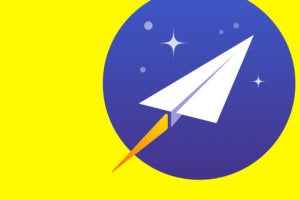 Newton
Newton Old techies may have in mind Orchard apple tree's once upon a time Organizer when they hear the name N, simply the name was more recently used for a desktop email app for Windows. While screen background email has been a deadening and stodgy experience for years, we really liked Newton for its clean design and awesome features like scheduling, email reminders, and utilitarian tierce-political party integration.
Unluckily, the dream of a $50-per-year electronic mail app for the desktop just wasn't well-founded, and the email help shut down in September.
Windows 8.1 exits mainstream support
While Windows 8.1 was a famed improvement over the fresh Windows 8 concept, it was ease confusing and one of these days gave way to the far improved Windows 10. Microsoft ceased mainstream feature support for Windows 8.1 happening January 9, 2018. The truth, even so, is that Microsoft was done with Windows 8.1 as soon American Samoa Windows 10 was out the door, with no evidential improvements in long time.
While Windows 8.1's mainstream patronage is over, it will preserve to live along with security updates until January 10, 2023.
Nvidia kills GPP
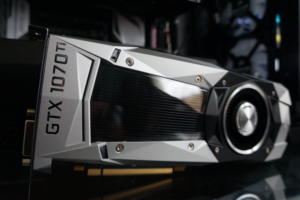 Brad Chacos/IDG
Brad Chacos/IDG Nvidia ended its GeForce Partner Program in May. The short-lived conception was, for consumers, a separate of predict of legitimacy for GeForce-branded GPUs. Manufacturers in the program, meanwhile, got early access to Nvidia tech and encouragement support on Nvidia's elite media channels.
Outsiders offered a divers take, picture information technology as a program that demanded manufacturers dedicate a specific marque exclusively to GeForce hardware, as HardOCP rumored. AMD-based cards reportedly couldn't post the same trade name, even if they had before. After waves of negative feedback, however, the jig was up and the GPP was canceled.
Kaby Lake-X
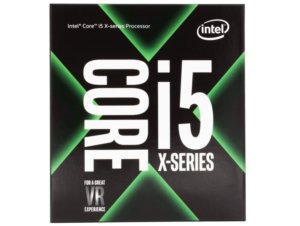 Intel
Intel Alongside its mass-market CPUs, Intel has a time-consuming history of supplying chips for PC enthusiasts who privation some serious power, at a serious damage. Sometimes, still, those enthusiast releases privy be a trifle confusing, which was the case with Kaby Lake-X. Launched in 2017 at the same time as the Skylake-X processors, the quad-core Kaby Lake-X CPUs weren't any more powerful than else Kaby Lake processors, though on that point was a small addition in clock stop number.
The one matter Kaby Lake-X did ask was an costly X299 motherboard, with opening prices around $200. It barely wasn't worth the discommode, and aside May 2018, Kaby Lake-X quiet left the stage as Intel's new Coffee Lake CPUs were gearing up.
Source: https://www.pcworld.com/article/403062/tech-that-died-in-2018.html
Posted by: hallmarkhimentrapsed43.blogspot.com


0 Response to "Tech that died in 2022 - hallmarkhimentrapsed43"
Post a Comment